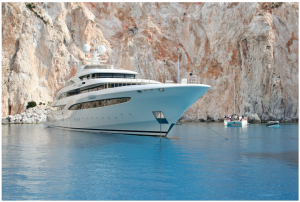How Government Regulations Impact Yachting – Political Studies (original) (raw)
 When discussing yachts, many envision luxury, relaxation, and open seas. However, the yachting experience is heavily influenced by government rules and regulations. These regulations ensure safety, protect the environment, and maintain fair use of waterways by yachts.
When discussing yachts, many envision luxury, relaxation, and open seas. However, the yachting experience is heavily influenced by government rules and regulations. These regulations ensure safety, protect the environment, and maintain fair use of waterways by yachts.
Safety Standards
One of the primary concerns of government involvement in yachting is safety. Boats, like cars, must meet specific safety standards before they can be legally operated. These standards cover everything from the structural integrity of the yacht to the safety equipment that must be on board, such as life jackets and fire extinguishers. Government agencies also mandate that yacht owners and operators have proper training. This includes understanding navigational rules and knowing what to do in an emergency. Such regulations are vital for preventing accidents and ensuring that all aboard are safe.
Environmental Regulations
Yachts can have a significant impact on the environment. To mitigate this, governments enforce environmental regulations that yacht owners must follow. These might include restrictions on waste disposal at sea to prevent pollution. There are also rules about where yachts can anchor to avoid damaging sensitive marine ecosystems. In some places, yachts must use specific fuels that are less harmful to the environment. These regulations help preserve ocean life and ensure that the beauty of the seas can be enjoyed by future generations.
Usage Fees and Taxes
Operating a yacht involves various fees and taxes, which can vary significantly from one country to another. These costs include docking fees, taxes on purchasing and owning a yacht, and charges for navigating certain waterways. These fees contribute to the maintenance of maritime facilities and the protection of maritime environments. They also help fund search and rescue operations. Understanding these financial obligations is crucial for yacht owners to avoid unexpected expenses.
International Laws and Treaties
Yachting often involves crossing international waters, which brings about another layer of regulations. International laws and treaties govern the seas to ensure peaceful cooperation among different countries. These laws affect where yachts can travel and what activities are allowed in international waters. Compliance with international maritime law is essential for smooth sailing across borders.
Impact on Local Economies
Governments also see yachting as a way to boost local economies. Marinas, yacht clubs, and related tourism can create jobs and generate revenue. Thus, some local and national governments encourage yachting through infrastructure improvements and promotional campaigns. However, they also need to balance this with the interests of local communities and environmental concerns.